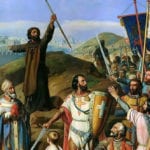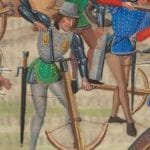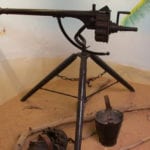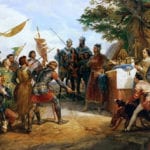 Mysteries
Mysteries  Mysteries
Mysteries  History
History 10 Surprising Stories About the Texas Rangers
 Humans
Humans 10 Philosophers Who Were Driven Mad by Their Own Theories
 Miscellaneous
Miscellaneous 10 Video-Game-Worthy Weapons and Armors from History
 Weird Stuff
Weird Stuff 10 Psychics Who Accurately Predicted Wartime Events
 The Arts
The Arts 10 Pieces of Art Inspired by a Broken Heart
 Health
Health 10 Science Fiction-Sounding New Medical Treatments
 History
History 10 Surprising Facts About the Father of Submarine Warfare
 Space
Space Ten Astonishing New Insights into Alien Worlds
 Weird Stuff
Weird Stuff 10 Bizarre Summer Solstice Rituals Still Practiced Today
 Mysteries
Mysteries Top 10 Haunting Facts About the Ghost Ship MV Alta
 History
History 10 Surprising Stories About the Texas Rangers
 Humans
Humans 10 Philosophers Who Were Driven Mad by Their Own Theories
Who's Behind Listverse?

Jamie Frater
Head Editor
Jamie founded Listverse due to an insatiable desire to share fascinating, obscure, and bizarre facts. He has been a guest speaker on numerous national radio and television stations and is a five time published author.
More About Us Miscellaneous
Miscellaneous 10 Video-Game-Worthy Weapons and Armors from History
 Weird Stuff
Weird Stuff 10 Psychics Who Accurately Predicted Wartime Events
 The Arts
The Arts 10 Pieces of Art Inspired by a Broken Heart
 Health
Health 10 Science Fiction-Sounding New Medical Treatments
 History
History 10 Surprising Facts About the Father of Submarine Warfare
 Space
Space Ten Astonishing New Insights into Alien Worlds
 Weird Stuff
Weird Stuff 10 Bizarre Summer Solstice Rituals Still Practiced Today
10 Oddities That Interrupted Military Battles
The battlefield is one of the most hectic locations imaginable, a place where laser focus is required to keep your life. So distractions are a liability that no one can afford.
Once begun, battles are expected to continue until a victor is decided. Sometimes, though, something so weird and intriguing is introduced that the resulting spectacle stops or at least pauses the battle while the soldiers gape in awe at whatever oddity stands in front of them. These are 10 such true cases from history.
10 Fistfight In Saunders Field
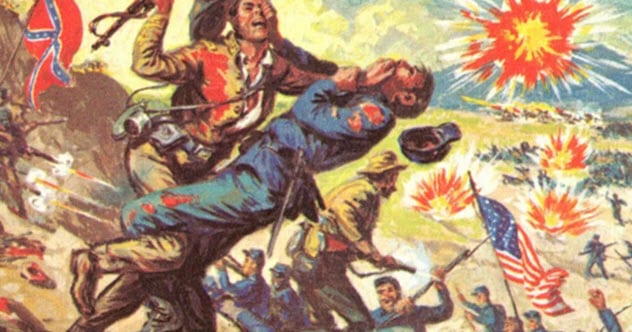
Battles between governments are events with thousands, tens of thousands, even hundreds of thousands of people all trying their best to kill. In the Battle of the Wilderness during the US Civil War, at least 200,000 men were involved in the business of trying to kill each other.
Somewhere in this chaos in a place called Saunders Field, a gully offered protection from the gunfire. A soldier from the Confederate side of the battle as well as a soldier from the Union side sought shelter from the fire of bullets in this gully. At first, they didn’t realize the other was there. But when they became aware, they did what any soldier at war would do and insulted one another.
When the insults weren’t enough, they agreed neither to shoot nor kill one another but to engage in a fistfight. The loser agreed to be taken prisoner by the victor. This was a kind of duel known as “fist and skull.” And so the two began their very personal one vs. one skirmish in the middle of a battlefield where hundreds of thousands of men were fighting.
When their fistfight became so intense that it erupted out of the gully in full view of both armies, their confrontation made such a scene that the two sides stopped fighting each other to watch the fistfight. Some even moved to get a better view.
Eventually, the “Johnny” (Confederate soldier) bested the “Yank” (Union soldier) and brought him back into the gully as a prisoner. When both men were out of sight, the two battle lines continued firing at each other. At nightfall, the “Johnny” took the beaten “Yank” back to his army’s camp as a prisoner of war.[1]
9 A Meteor Ending A Battle Before It Begins

During the Third Mithridatic War, which was carried on by the Roman Empire against Mithridates VI, king of Pontus, a Roman legate named Lucullus sent an insult to his opponent. Lucullus said that his rival was like a hunter who was so cowardly that he would only go into an animal’s empty den and was not brave enough to actually face the animal.
After hurling that insult, Lucullus drew battle lines with his 30,000 foot soldiers and his cavalry units. Right as he was about to meet the numerically superior enemy, something odd happened.[2]
The sky split open, and a silver hot meteorite fell between the two armies. Reportedly, it was shaped like a hog’s head. This was such a strange sight that both armies agreed not to fight, and the battle never began.
8 An Eclipse Stops A War

An astronomical phenomenon ending a battle before it began is one thing, but what if the fighting had already been ongoing for years over a very personal matter? In 585 BC, the Lydians and the Medes (aka Medians) had been fighting for six years and neither side was gaining the upper hand. At one point, a son of the king of the Medes (aka the king of Media) was killed and then served up as a meal.
To say tensions were high is an understatement. During one battle at Halys River, a total solar eclipse occurred and plunged the daylight sky into night. Both armies took this as a sign that they should end hostilities.
Ultimately, this temporary truce led to a permanent end to the entire war when a daughter of the king of Lydia married another son of the king of Media. To make matters even more impressive, this was the first eclipse known to have been predicted—by a philosopher known as Thales who had said that an eclipse would occur at some point during the war between the Lydians and the Medes.[3]
7 A Holiday
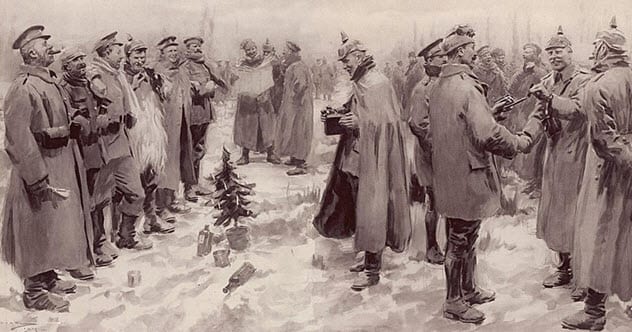
This is perhaps the most famous pause in hostilities of all time. In the midst of World War I, a truce was proposed in honor of the Christmas holiday, but no such formal truce was adopted by any official participants of the war. Instead, the soldiers themselves in some locations made their own truce with each other.
Beginning with carols sung from the trenches to each other, the two opposing sides eventually found trust and common ground and went to meet each other unarmed. This led to handshakes, gift exchanges, and even friendly matches of football.
This spur-of-the-moment truce happened early in the war and was not repeated in later years because of threats of disciplinary action from superior officers. Still, for a brief time, a war was paused for songs and plum pudding.[4]
6 A Picnic
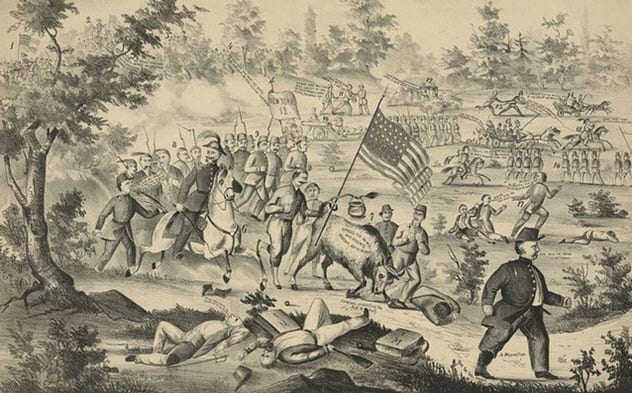
At the beginning of the US Civil War, the first major battle took place near Centerville, Virginia. The expected outcome was an easy victory for the Union Army and a rapid defeat—and quick end to the war—for the Confederates.
The certainty of this was so believed that a good number of civilians turned out with sandwiches and opera glasses to watch the Civil War begin and end before their eyes. Some of their number even included Senators and Congressmen.
Instead of an easy victory for the Union, the Confederate Army ultimately broke the Union lines and forced many soldiers to flee—right into the picnic. Civilian picnickers and soldiers alike ran from the battle together. Senator Henry Wilson even passed out sandwiches to the fleeing Union soldiers.[5]
5 Hypothetical Weather
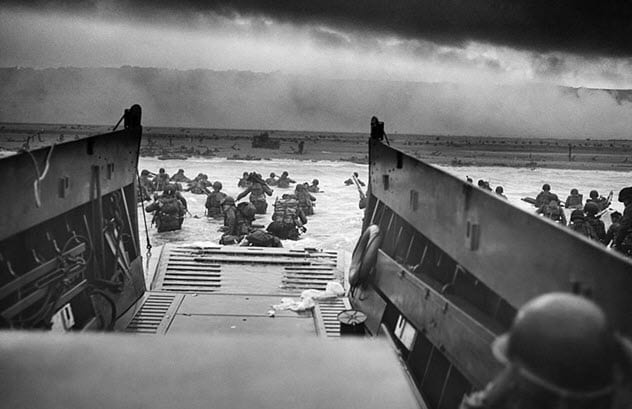
This might be a bit of a cheat. The hypothetical weather didn’t interrupt anything (how could it, being hypothetical?), but the battle was so important that even the prediction of bad weather was enough to delay engagement.
The battle was known as Operation Neptune. After the fact, it was referred to as D-Day, when the Allied forces stormed the beaches of Normandy during World War II. This hypothetical weather was predicted the night before the operation.
The battle was planned for June 5. Yet meteorologists predicted the weather would be terrible, which to a layman could be doubtful because the weather on June 4 was calm and pleasant—perfect for an invasion. Not only was the next day predicted to have bad weather, but the poor conditions were supposed to persist for two weeks, a serious strain on the entire operation.
On June 5, the weather was miserable as predicted, but meteorologists anticipated a brief gap in the weather on June 6. It wouldn’t be perfect, but it would be the best possible conditions for the next two weeks.
Eisenhower decided to risk it and launched the attack on June 6. The weather held enough for the operation to be launched and to succeed, but it wasn’t perfect. The waves were six times worse than what the amphibious tanks deployed in the attack were designed for, and only two of the 29 “Donald Duck” tanks made it to shore.[6]
4 A Miracle Or A Windstorm?
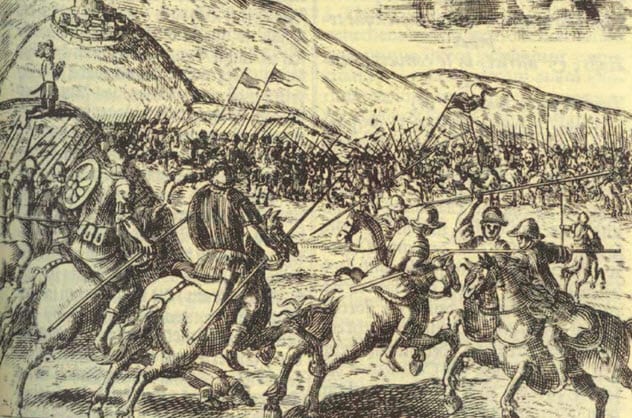
During a Roman civil war in 394, the forces of the Western and Eastern Roman Empires met on the field of battle in a particularly bloody engagement. Emperor Theodosius had prepared his own vast army as well as an army of other barbarians to assist in the battle.
But he also tried one more avenue to gain the advantage. Theodosius reportedly spent his time before the battle in a nightlong prayer, which some believed paid off.
In the middle of the next day’s conflict against the forces of the Western Roman Empire, a cold storm originating from the north defeated much of the opposing army for him.
A miracle from God or a well-timed natural phenomenon?
If it was a miracle, it wasn’t a complete one as the enemy forces still had the upper hand. By nightfall, Theodosius and his army were trapped. Victory was so sure that the Western commander began handing out awards to his men.[7]
His overconfidence may have been his downfall because Theodosius’s men attacked and killed the enemy commander in his own camp during the night. With him dead, his men quickly joined sides with Theodosius. Perhaps not a bad move if one thought he had divine backing because of a well-timed storm.
3 A Man Returning From A Bathroom Break
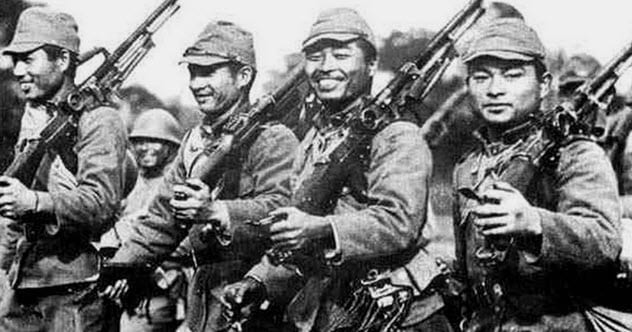
In 1937, relations between China and Japan were tense. The Japanese army frequently flaunted itself in the midst of Chinese settlements during military exercises which were seemingly designed to unnerve the Chinese and show off Japanese military might.
During one such display around the Chinese city of Wanping, one soldier felt the call of nature. Private Shimura Kikujiro went on an unscheduled bathroom break. By the time he returned, his compatriots had moved on. When the Japanese army took a roll call back at camp and realized that he was missing, they returned to Wanping after dark and demanded to search for their missing soldier.[8]
Access was denied, and this led to increasingly hostile negotiations that ended in preparation for an assault on the city. After shots were fired, who walks embarrassingly back into camp but Private Shimura Kikujiro.
Though the pretense for their attack was false, the battle had already begun. It was this justification and this battle that led directly to the Second Sino-Japanese War that lasted until the end of World War II in 1945.
2 A Volcanic Eruption
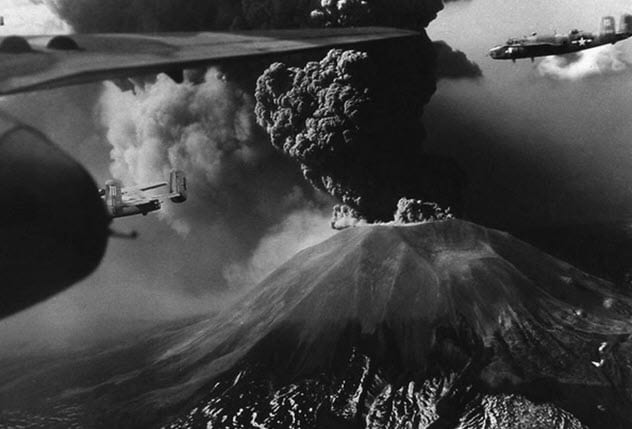
Late in 1943 during World War II, Italy had surrendered to the Allied invaders. By 1944, a number of large air bases were being used in the country by the Allies against Nazi forces to the north. One such airbase was nestled beneath the famous Mount Vesuvius, and it was home to the 340th Bombardment Group.
In March 1944 during the heart of the war, the volcano erupted in fury. The 340th Bombardment Group suffered the loss of 88 planes, more than in any recent Nazi raid.
Sergeant Hymie Setzer, a member of the 340th Bombardment group, wrote of his experiences from the eruption. He said:
The storm still raged. Small stones fell in quantity, and every 15 minutes or so, the heavens would open up with the big stuff. I say “heavens” instead of “mountain” because that is the way it seemed.
The stones were not lobbed from the mountain but dropped from the clouds, falling straight down with great force. As the clouds thinned out, the rocks fell from them as their weight became too great to be supported. Large stones fell close to the mountain till a great distance fine black dust was falling.[9]
Despite this onslaught from nature, Sergeant Setzer also included an optimistic note in his writings:
So on April 15, 1944, 25 days after the disaster, the 340th Bomb Group is again a complete fighting unit and still the best damned group there is. Hitler, the self-styled “Great Rebuilder,” please note.
1 Bees

During World War I in German-held East Africa, British forces led by Major General Arthur Aitken attacked the harbor of Tanga. The many mishaps of the British forces included a limited number of troops reinforced by poorly trained soldiers, precious little intelligence on their enemy, ignoring the advice of locals knowledgeable in the area, and actually giving the enemy advanced warning of their assault. The attack did not go well for them.
If all these factors weren’t enough, a third party in the conflict with superior numbers was aggressive toward both German and British forces: a bee swarm. During the battle, a large bee colony was agitated and attacked both sides, even causing a pause in the fighting while the Germans and the British fled.
By the next day, Aitken’s forces were in disarray as they disembarked and retreated. Afterward, he was relieved of his command. The bees were an interruption but hardly the cause of the failed attacked.[10]
Read more about forgotten battles that changed history on 10 Forgotten Battles That Changed World History and 10 Forgotten Battles That Shaped History.

